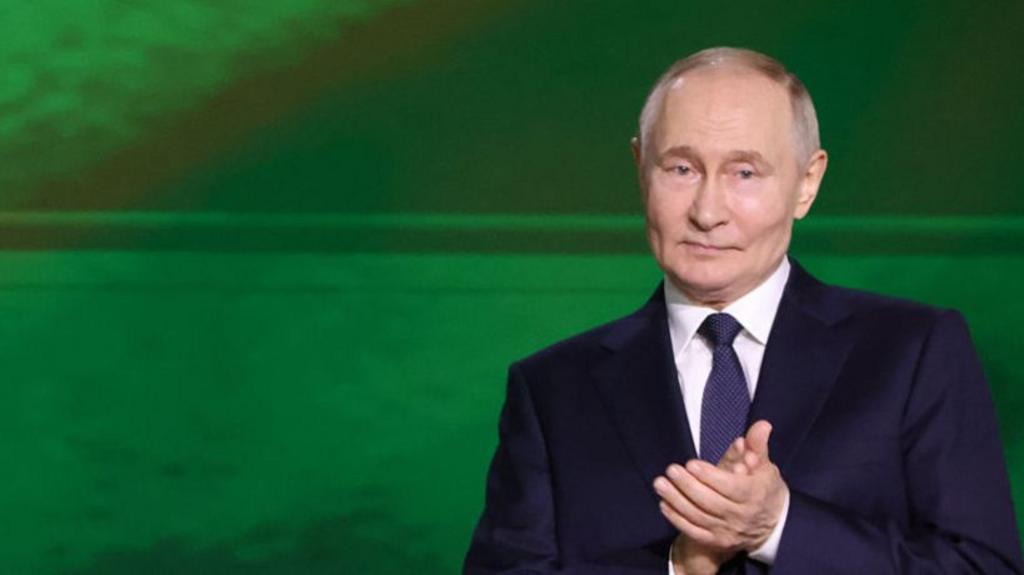“`html
From the Oval Office on Monday, President Trump adopted a firm tone, unveiling new U.S. arms shipments to Ukraine funded by European allies, and threatening the imposition of fresh tariffs, which could potentially impact Russia’s financial resources.
However, in Moscow, the stock exchange responded with a 2.7% increase.
This positive reaction suggests Russia had anticipated even more stringent sanctions from the Trump administration.
The tabloid Moskovsky Komsomolets cautioned in its Monday edition, “Russia and America are moving towards a new round of confrontation over Ukraine.”
The publication added, “Trump’s Monday surprise will not be pleasant for our country.”
While the announcement was not “pleasant,” Russia may find some relief in the fact that secondary tariffs against its trading partners are delayed for 50 days.
This extension provides Moscow with time to formulate counter proposals and potentially further delay the implementation of the sanctions.
Nonetheless, President Trump’s announcement signifies a more assertive approach towards Russia.
It also underscores his growing frustration with President Putin’s apparent reluctance to negotiate a peace settlement.
Upon his return to the White House in January, President Trump identified ending the conflict in Ukraine as a key foreign policy objective.
For months, Moscow’s response could be characterized as: “Yes, but…”
In March, Russia welcomed President Trump’s proposal for a comprehensive ceasefire, but stipulated that Western military aid and intelligence sharing with Kyiv should cease, along with Ukrainian military mobilization.
Moscow has consistently asserted its desire for peace, but insists that the “root causes” of the war must first be addressed. The Kremlin’s perspective on these causes differs significantly from that of Ukraine and the West, arguing that the conflict stems from external threats to Russia’s security posed by Kyiv, NATO, and the “collective West.”
However, in February 2022, Russia initiated a full-scale invasion of Ukraine, marking the largest land war in Europe since World War II.
The “Yes, but…” approach has allowed Moscow to avoid additional U.S. sanctions while continuing its military operations. With a focus on improving bilateral relations and achieving a peace agreement, the Trump administration initially prioritized incentives over punitive measures in its interactions with Russian officials.
Critics cautioned that Russia was merely playing for time. However, President Trump remained optimistic about finding a path to persuade President Putin to reach an agreement.
President Putin has shown no urgency in pursuing a deal, believing Russia holds the upper hand on the battlefield and insisting on peace on its terms.
These terms include an end to Western arms shipments to Ukraine, which President Trump’s announcement indicates is not forthcoming.
President Trump has expressed his “displeasure” with President Putin.
However, this disillusionment appears to be mutual. On Monday, Moskovsky Komsomolets commented:
“[Trump] clearly has delusions of grandeur. And a very big mouth.”
The Supreme Court recently allowed Trump to lay off half the department’s workforce, key to his plans to shut it down.
The New Jersey governor has declared a state of emergency as some roads are blocked and subways delayed.
The BBC’s Gary O’Donoghue shares the story behind his exclusive telephone interview with Donald Trump.
The US president says he “likes to think about as little as possible”.
It comes after US tomato growers accused their Mexican counterparts of dumping their produce.
“`

